What is the social labs approach?
Social labs are collaborative interventions that bring together diverse stakeholders to address complex societal and systemic challenges.
They offer a structured and experimental space for stakeholders to leverage their collective intelligence and creative diversity to co-create and implement new solutions.
Social labs bring together people from across the system to seek the root causes behind their problems and then collaborate on devising and testing solutions aimed at key leverage points. This change work continues in the “lab” of the real world – over time and in context.
Some of our social labs last for years. The team repeatedly convenes to refine their ideas based on their learning and then heads out again into their field of work for more learning, testing, and acting.

Systemic
Addressing root causes – not only symptoms and quick fixes.

Experimental
Iteratively prototyping and piloting interventions and then scaling solutions in practice – not only producing reports, recommendations, or plans.

Ongoing and sustained
Mobilising a network to implement and sustain solutions through learning, trust-building, sharing, and communicating – not just a one-off project.

Collaborative and inclusive
Bringing together actors from across the system – not only experts or authorities.
Social labs: key ingredients
By combining systems thinking, co-creation, iterative experimentation, emergent strategy, and action-oriented implementation, social labs aim to create transformative and sustainable solutions that address societal problems.
To do this, social labs need 3 key ingredients:

Stakeholders from across a whole system
Progress results from skillfully engaging people with different perspectives and interests to collaborate on shared concerns.

A strong container and skilled guides
A structured space and expert facilitation are required to engage in new ways of listening, talking and acting.

A generative approach
A creative, experimental method that engages team members’ whole selves – head, heart, and hands – enables breakthrough results.
The social labs process
Co-initiating
Convene a strategic microcosm of the system
Co-sensing
Develop a shared understanding of the problematic situation
Co-presencing
Retreating to access deeper knowledge, clarify strategic direction, and leverage points
Co-creating
Prototyping and piloting interventions
Co-evolving
Institutionalising new solutions
Why use the social labs approach?
We’ve found social labs to be a practical approach to working together differently, enabling multi-stakeholder groups to move from:
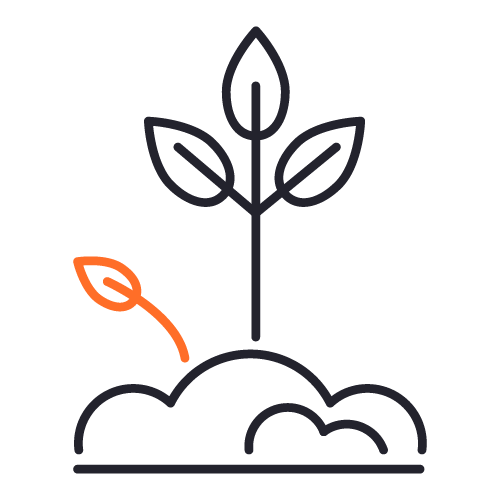
Fixing symptoms to addressing root causes
Create systemic changes that have a lasting effect
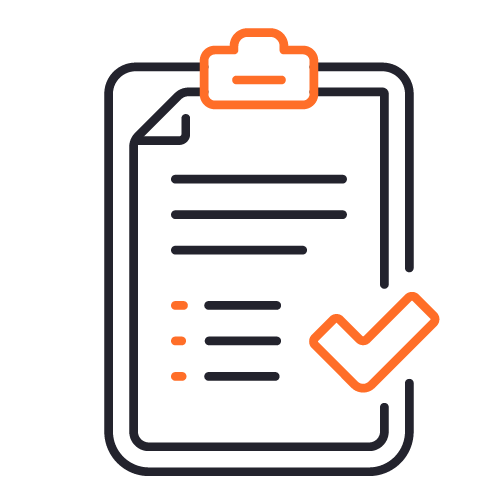
Making recommendations on paper to developing solutions in practice
Develop a set of actions based on “lived experiences” of the situation
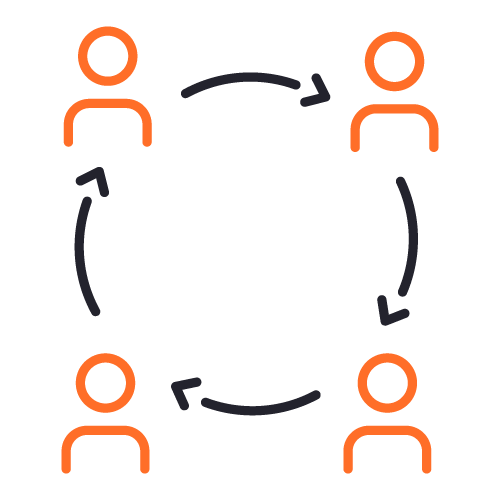
Relying on experts to involving all key stakeholders
Community ownership and connections. No need for “buy-in” – collaboration instead
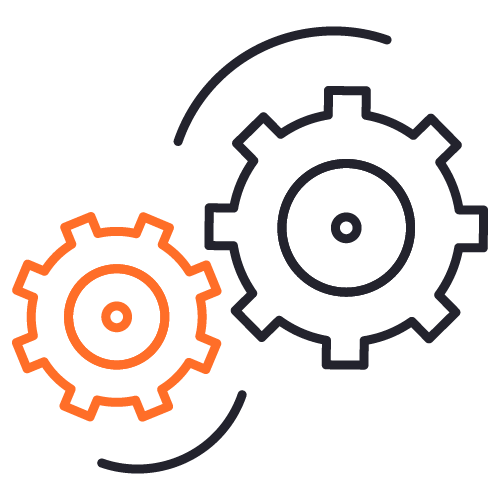
Learning then doing to learning by doing
Building solutions from small breakthroughs and insights that can scale
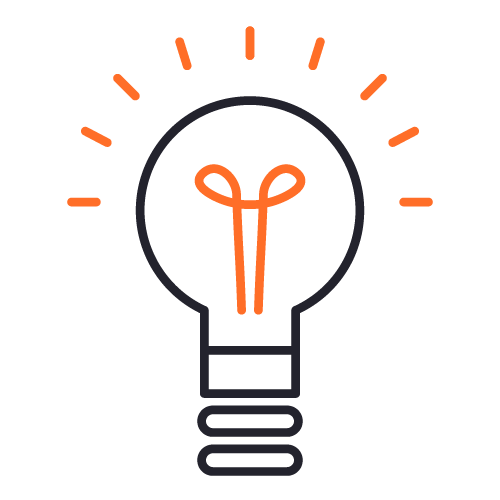
Implementing one chosen solution to prototyping and managing several solutions
Surface disruptive solutions that create new approaches to the situation
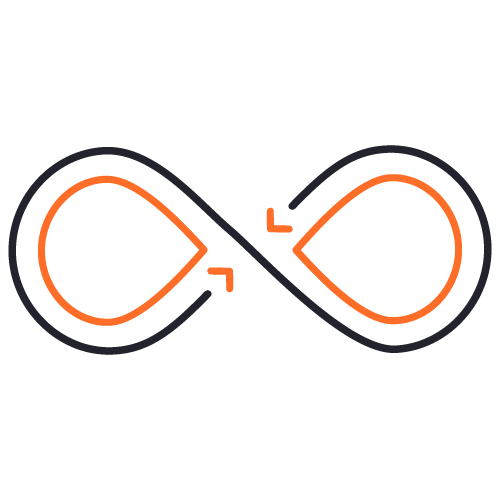
A one-off project to a platform delivering results over the short to long term
Capacity for supporting the work is built into the community – stays agile to address emerging questions
Social labs in the real world
Reos has employed the social labs approach to support multi-stakeholder groups to address complex and contentious situations worldwide. These include food security in Southern Africa, energy in the United States, Aboriginal health in Australia, child malnutrition in India, and water quality in Canada.
Explore some of the projects we’ve supported below.
Sustainable Food Lab: creating examples of mainstream sustainable food supply chains
Challenge: The food system relies on long-distance, impractical, wasteful supply chains centred around industrial agriculture. To feed the population of the future, we need to build a more sustainable food system by creating and demonstrating mainstream supply chains that are resilient, sustainable, and market-based.
Partnership: Launched in 2004, the Sustainable Food Lab (SFL) is a nonprofit organisation co-initiated by Reos Partners and the Sustainability Institute.
SFL brings corporations, civil society leaders, non-governmental organisations, and governments together to accelerate incorporating environmental, economic, and social sustainability into the DNA of the mainstream food and agricultural systems. It involves food system actors from Europe, North America, and Latin America.
Using the social labs approach, Reos Partners and the Sustainability Institute provided leadership, process design, and facilitation from SFL’s conception in 2002 through the end of its first phase in 2007.
Transformation: Today, SFL offers a variety of forward-thinking initiatives that help organisations create more sustainable food systems. It provides professional development opportunities, measurement tools, and pre-competitive collaborations.
By fostering unlikely partnerships with businesses and farming systems, SFL effectively helps implement large-scale sustainability innovations in mainstream food systems.
iii-lab: improving access to insurance for those who need it most
Challenge: Many barriers stand in the way of providing good quality insurance to vulnerable people and businesses, leaving many worldwide without access to options to help them through a crisis. The reasons are found both on the supply and demand sides and may be intensified by the regulatory and policy environment.
Partnership: Working with Reos Partners since 2017, the Access to Insurance Initiative (A2ii) has convened national inclusive insurance innovation labs (iii-labs) in 12 countries worldwide to increase the uptake of good quality insurance to vulnerable people and businesses. Each country team comprises the regulator, private insurers, NGOs, consumer protection groups and insurance associations.
The iii-lab process has involved national and international dialogues and analysis, innovation incubation, and prototyping. The innovations are implemented at a national level, while the cross-national dialogues provide a stimulating space for learning and inspiration across contexts.
Transformation: New products, services, platforms, and policies alongside new relationships, narratives and leadership skills have been developed, and knowledge sharing has occurred within and across country teams. The teams have prototyped more than 15 concrete innovations that have increased the resilience of vulnerable people and businesses in the participant countries, and examples have been generated that can inspire further action elsewhere.
Sustainable fashion collaboration: creating ethical and sustainable fashion in Brazil
Challenge: The fashion value chain in Brazil, as in other countries, faces social, economic and environmental sustainability challenges. These challenges are related to labour issues, social inequalities, consumption patterns, the product life cycle, quality of education and training, use of technology and the predominant business model.
Partnership: Bringing together 40 leaders in Brazil, among them garment workers, retail giants, the public sector, academia, associations and unions, institutes and foundations, international organisations, civil society organisations, media and others, Reos Partners has supported a process in which participants are prototyping initiatives with systemic-level impact focused on the challenges listed above.
Transformation: The results of the Sustainable Fashion Collaboration / Colabora Moda Sustentável include new and strengthened relationships and partnerships between the different stakeholders in the supply chain, a shared commitment to addressing common concerns such as sustainability, fair working conditions, and reduction of gender, ethnicity and class inequalities in the sector, tested solutions for the core challenges, financial mechanisms including the creation of a fund to support SMEs in the fashion industry to survive and thrive, and a resilient platform for collaboration. 22 initiatives have been prototyped, of which 9 received seed funding, and 3 impact businesses were provided mentoring.
Reos Partners have been at the forefront of designing our process and supporting our lab members throughout but also acted as mentors and coaches to our core team in Europe, the US, Ghana and Kenya. This was important because systems change processes are emergent, and the process of needing to be flexible and guided by members’ needs can be challenging. Reos was exemplary in holding our hand throughout. The success of the RINGO Lab, thus far, could not have been possible without the Reos Partners team. They have made a significant contribution to our work.
Deborah Doane
Convener of the RINGO project (reimagining international non-governmental organisations)
Reos Partners supported the A2ii in designing and facilitating the iii-labs on multiple levels across country teams: leadership support for individuals, team coaching and guiding teams through the innovation process. The methods they used built networks, created new insights and shifted perceptions about each other and the inclusive insurance sector, as well as inspired new actions through innovation. Reos' work has been a decisive factor in achieving the outcomes that have emerged from the iii-labs.
Teresa Pelanda
iii-lab Project Manager, Access to Insurance Initiative
Reos Partner’s work helped inspire the Engineering Change Lab, and their support has been critical to its success. I really appreciate how they leveraged best practices from cutting-edge systems change efforts around the world and worked with us to customise the approach for our specific context. Now that we’re a more “mature” social lab that is increasingly breaking new ground ourselves, we really appreciate the role Reos plays as a central learning hub for a wide range of systems change efforts.
Mark Abbott
Managing Director, Engineering Change Lab Canada